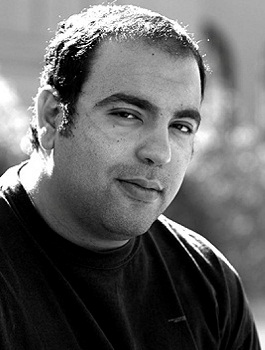By Zeeshan Suhail
ISLAMABAD: At the request of the Prime Minister, the government of Pakistan submitted an official nomination to the 2012 Nobel Peace Prize Committee for a Pakistani humanitarian, Abdul Sattar Edhi, late last year. This is encouraging news, considering the political and economic instability which Pakistan continues to face. With such challenges, it’s important to keep Pakistan’s peace and human development on the agenda.
Edhi has devoted his entire life to people’s well-being. His organization — the Edhi Foundation — was established in 1951, shortly after Pakistan gained independence. Noticing that his government can barely fulfill the needs of its people, Edhi has stepped up to the plate and become an institution in his own right. Starting over 60 years ago with a small ambulance which he drove himself, he now runs an international charity organization with centers in 37 countries.
The foundation runs the country’s largest ambulance service; it operates hundreds of hospitals and clinics, and manages scores of orphanages that have served hundreds of thousands of people over the course of six decades. He has performed the last rites for countless people whose bodies were never claimed from morgues. He has listed his own name as the father of thousands of children, nameless and parentless, who are placed in cradles at Edhi Centers, which carry out the service work of the Edhi Foundation. And he has never taken a day off work. For a country that constantly finds itself in a state of disarray, the efficiency of his staff and volunteers are mind-boggling.
The Edhi Foundation also provided assistance to disaster-stricken communities in the aftermath of Hurricane Katrina in the United States and Cyclone Sidr in Bangladesh. Pakistanis came forward to assist those in need not just within their national borders, but outside them as well. Edhi firmly believes that God will give him the resources to assist the calamity-stricken anywhere in the world.
Edhi recently stated in an interview that “No religion is higher than humanity”. Indeed, Edhi’s humanitarian work gives credence and legitimacy to efforts in the service of humanity that surpass the barriers of race, religion or culture around the world — a passion which a fellow humanitarian, American actor and film director Sean Penn, also shares.
Penn, who is a two-time Academy Award winner, exhibited his enthusiasm for Edhi’s work on a recent visit to an Edhi Center in Karachi. Edhi candidly confessed that he was unaware of who Sean Penn was, but Penn was deeply in awe of what the Pakistani humanitarian had accomplished over the years.
Previous Nobel Peace Prize winners have been acknowledged for their tremendous efforts in the pursuit of peace for the communities they worked in. Edhi’s struggle, passion and mission resemble that of Mother Teresa of India to a great extent. Her passion and desire to serve the poor of Calcutta tugged at her heart while she taught at St. Mary’s High School. What started in 1948 as an open-air school for Calcutta slum residents quickly turned into a charity that spread across the world.
Edhi’s trajectory has been similar. He started driving an ambulance and helping the ill for no recompense, expanding the scope of his charity as he sensed the growing needs of Pakistan’s poor.
Edhi maintains that he doesn’t covet the Nobel Peace Prize — or any award, for that matter. His goal instead is to serve people. If society has turned its back on you, Edhi’s arms will be outstretched for you.
Pakistan continues to suffer from deeply negative perceptions that reside in the mind-set of the global public. The socio-economic conditions of Pakistan remain precarious, and Edhi’s task has become that much more urgent. For the recipients of his care, their living saint is already a Nobel Peace Prize winner; the nomination only provides greater recognition, legitimacy and credibility that will help ensure his work continues.
Zeeshan Suhail is an international development consultant and freelance writer. This article was written for the Common Ground News Service (CGNews).





